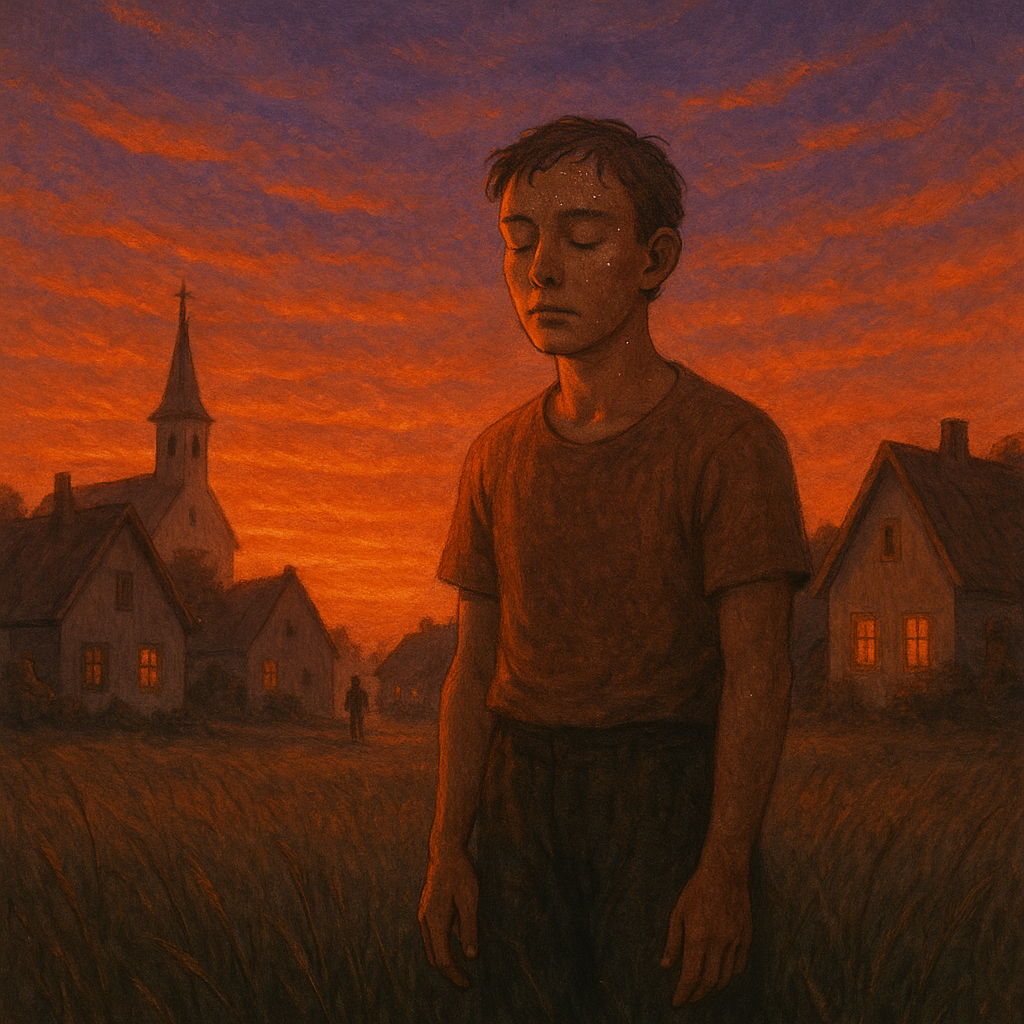The sun kept setting, setting still;
No hue of afternoon
Upon the village I perceived,—
From house to house ‘t was noon.
The dusk kept dropping, dropping still;
No dew upon the grass,
But only on my forehead stopped,
And wandered in my face.
My feet kept drowsing, drowsing still,
My fingers were awake;
Yet why so little sound myself
Unto my seeming make?
How well I knew the light before!
I could not see it now.
‘T is dying, I am doing; but
I’m not afraid to know.






